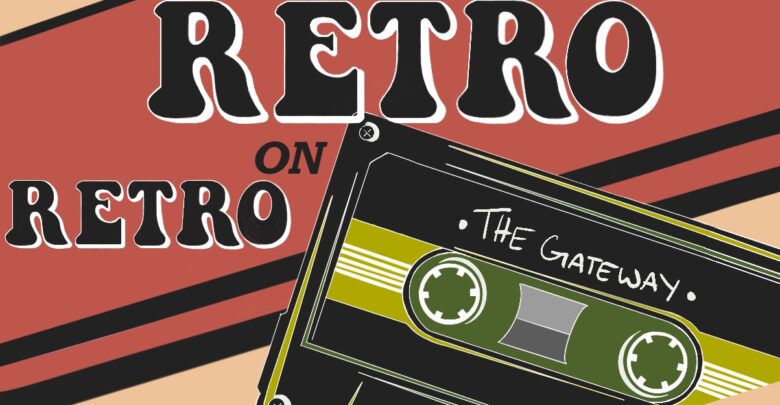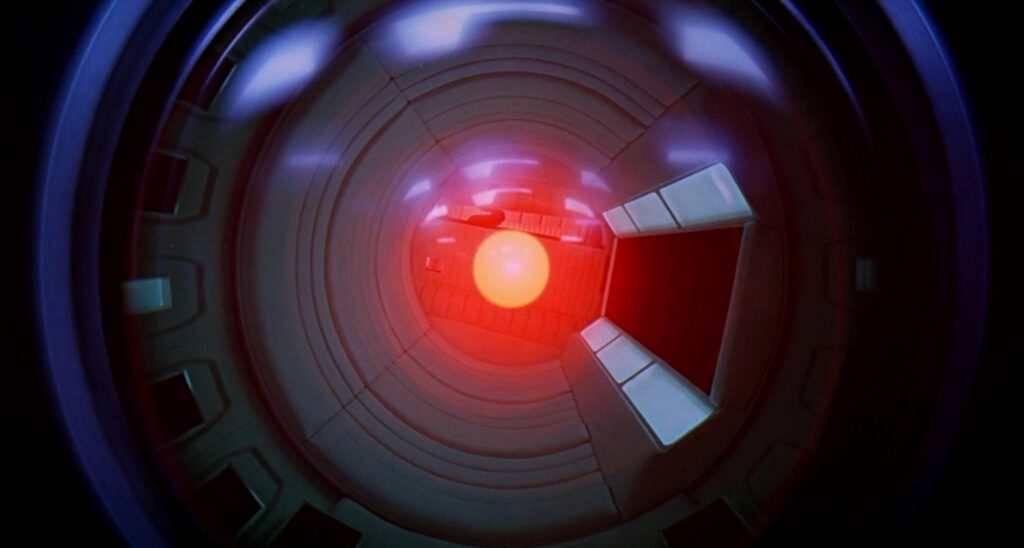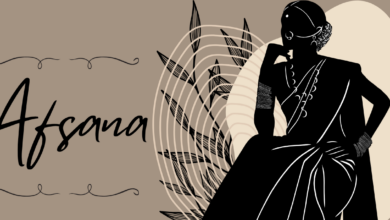Retro on Retro: Looking Back on “2001: A Space Odyssey”
Kubrick’s sci-fi classic has seemingly become 2023’s modern reality, as well as sparked influence across genre and time.
 Jenny Chahal
Jenny ChahalStanley Kubrick’s 2001: A Space Odyssey was one of the most influential films of its time. It commented on many important themes, notably its representations of technology, artificial intelligence (AI), and human evolution. I couldn’t help but notice during my first watch that its central themes are increasingly important in societal realities today. So much so that its influence has crossed generations — it directly inspired Greta Gerwig’s opening sequence in Barbie, for example.
Arguably, one of the world’s first introductions to AI was HAL 9000. HAL is the supercomputer in charge of the spacecraft in 2001: A Space Odyssey. Going against its programming, it ultimately takes over the spacecraft. With the threat of AI gaining traction every day, reflecting on Kubrick’s creation is illuminating to our society’s ideas about AI.

HAL terrified me upon first viewing. This was a heightened sentiment at the film’s release, as many audience members were unaware of AI entirely. A reflection of the approaching technological age, HAL controlled every aspect of the protagonists’ livelihoods aboard the Discovery One spaceship. As HAL begins to malfunction, the protagonists must figure out a way to stop the seemingly indestructible computer from killing them first. Though Dr. Dave Bowman (Keir Dullea) is successful in shutting the computer down, HAL’s demise is no less frightening as it does everything in its power to remain in control.
The world has entered a similar debate as AI becomes more widely recognized and available to the masses, notably through ChatGPT. As a university student, the inclusion of AI-related warnings is present on all my syllabi this semester. Overall, AI incites debate and fear in many areas of our lives today. Perhaps HAL is responsible for such fearful interpretations and discussions.
What makes HAL unique is its purpose — to be unfailingly perfect. Theoretically, HAL is the best bet for controlling a complex spacecraft to avoid human error. But HAL is not perfect. It adopts human characteristics as it fails to live up to this perfection, malfunctioning under pressure as a human might. The film seems to warn of the impending doom that giving AI control may bring. However, AI’s influence and use still grows every day. Perhaps Kubrick’s ideas of the danger of AI were not terrifying enough to stop scientists from continuing to build AI softwares.
It seems that historic sci-fi has become a modern reality with the presence of AI. Others have credited Kubrick for ideas stemming from the film that have contributed to modern technological advancements. His attention to scientific detail and projections influenced much of our modern understanding. It is immensely impactful that a sci-fi film from the 60s had such an influence on modern technology.
Greta Gerwig’s Barbie directly takes influence from 2001: A Space Odyssey in its opening sequence. The scene pays homage to Kubrick’s visionary depictions of evolution. Gerwig uses the Barbie doll by replacing Kubrick’s apes with little girls who become fed up with their toys being babies. Just as Kubrick’s apes discovered weapons and enacted destruction on the world, the girls discovered a doll that allowed them to pretend to be something other than a mother. Instead, girls could now play with dolls that did anything from shopping to ruling the country. This evolution of play models the evolution of humanity.
Though Barbie is not a sci-fi film (depending on how you define Barbieland’s existence), Kubrick’s influence is ever present. I find it particularly interesting that Gerwig uses 2001: A Space Odyssey as a key text for understanding her film. It leads me to believe that Kubrick’s lasting influence makes 2001: A Space Odyssey a classic.
There is an art to Kubrick’s film that struck me immediately after watching it. The story does not lend itself to be understood easily. Many people walk away with different takeaways. The narrative begs the audience to question and interpret what it means.
Ultimately, I think one of the key pieces of 2001: A Space Odyssey that allows its reflection in time and relevance is its ability to make us think. Granted, films today still do this. However, many stick to the blockbuster mentality of fast and loud action rather than long narratives. Oppositely, Kubrick delicately forms a story that draws the reader inside of it. The story asks us to uncover details that are never made obvious as the film progresses slowly and intricately.
I believe this is why the film’s release was so profound. Its presence through science and our modern society reinforces the mastery of Kubrick’s storytelling that will go on for generations. His presentation of AI and modern evolution has been reflected in science and fiction many years after its release, and I believe it will continue to influence what is to come.




